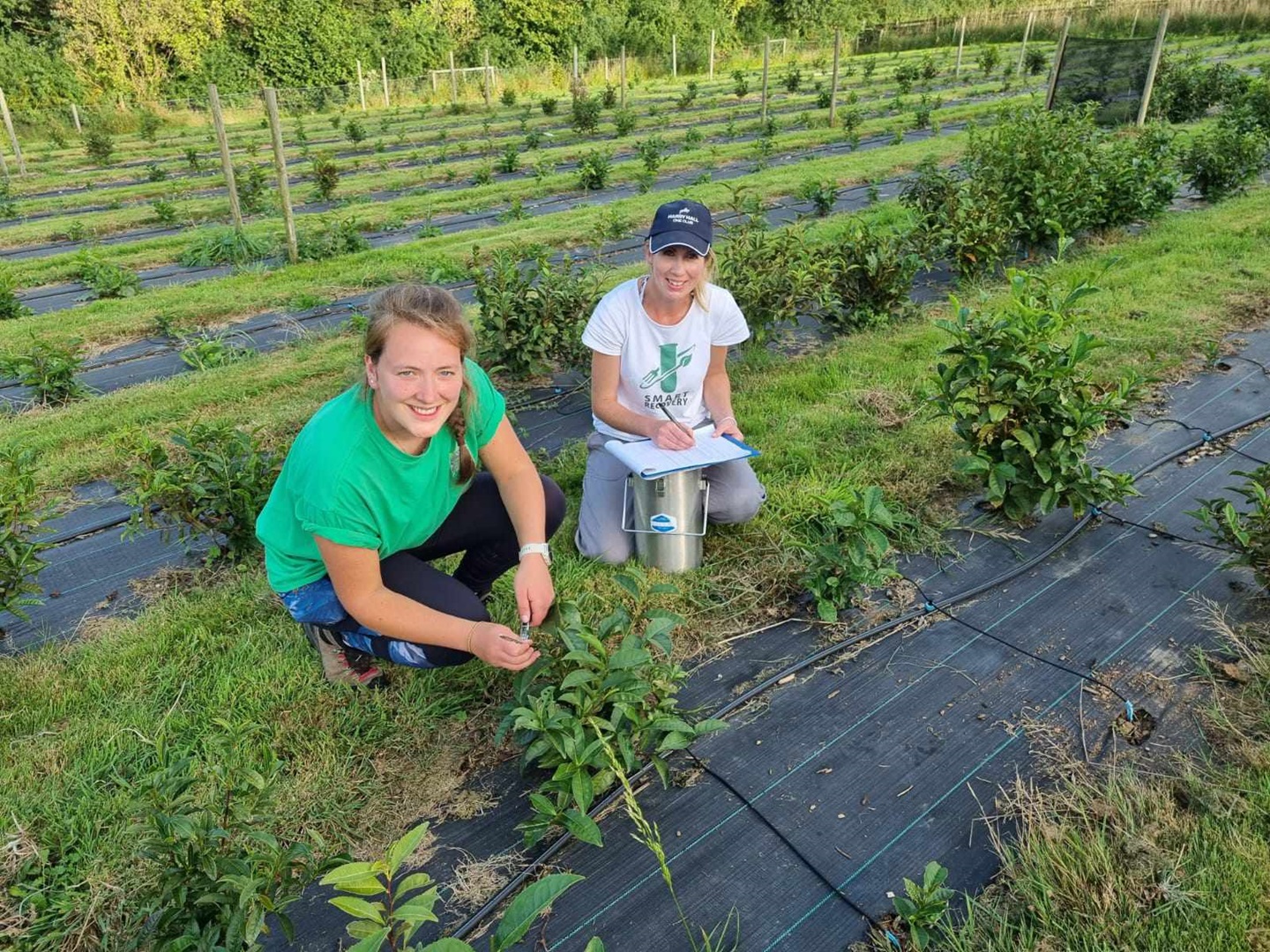Time for more home grown tea cultivation?

Dr Amanda J Lloyd and Dr Ali Warren-Walker gathering samples at Dartmoor Estate Tea in Deveon.
21 May 2025
Rows of tea plants could become a more familiar sight on the hills of Wales and other parts of the UK in the future.
Scientists at Aberystwyth University have been using machine-learning to analyse the chemical make-up of tea grown in non-traditional areas, including Powys in mid Wales and Dartmoor in south west England.
They hope their findings will help emerging tea growers in the UK to develop breeding strategies, cultivation practices and processing methods which suit climate conditions in this part of the world.
The research team are currently working with Dartmoor Estate Tea in Devon which is known for its unique microclimate and soil diversity.
The study is focusing on six varieties of tea which have been selected by the estate for their adaptability to diverse environmental conditions and their potential for chemical diversity.
Speaking on International Tea Day 2025, Dr Amanda J Lloyd, a senior researcher in food, diet and health at Aberystwyth University’s Department of Life Sciences, said:
“This study is contributing to the growing field of metabolomics by providing a comprehensive chemical profile of tea grown in a non-traditional region. Our findings offer new insights into the adaptability of tea plants and their potential for cultivation in emerging regions, contributing to global food security and agricultural diversification. Further research will now need to be carried out and should include multi-seasonal sampling, comparisons with traditional tea-growing regions, and analysis of processed tea to provide a more comprehensive understanding of tea chemistry.”
The study’s findings have been shared in an academic paper published in Metabolites, an international, peer-reviewed open access journal.
Dr Lloyd and her team have also been working with Buckhall Farm near Knighton in Powys which is pioneering tea cultivation in high-altitude Welsh conditions. The project was part of the first phase of the SBRI Agri-Food Technology Challenge, funded by the Welsh Government.
The work builds on an innovative portfolio of research at Aberystwyth University focused on tea’s health benefits, sustainable cultivation and consumer behaviour.
Among other ongoing studies is the Better Brain project, which is funded by Innovate UK and which is currently recruiting for a trial investigating the effects of a supplement containing green tea extract, ginseng and omega-3s on cognitive function in middle-aged and older adults.
The study is led by the Well-being and Health Assessment Research Unit (WARU) at the University, working with colleagues from the Department of Psychology and using advanced electroencephalogram (EEG) technology to assess cognition and wellbeing.
Professor Nigel Holt from the Department of Psychology and the University’s Associate Pro Vice-Chancellor, International, said:
“Tea is not only comforting but increasingly reveals itself to be a cognitive ally. Our research is helping us understand the deep biochemical relationships between tea’s compounds and mental function. Better Brain is particularly exciting because it bridges nutrition, psychology and neurophysiology.”
For more information on our tea research or to participate in current studies, take a look at the WARU website.
